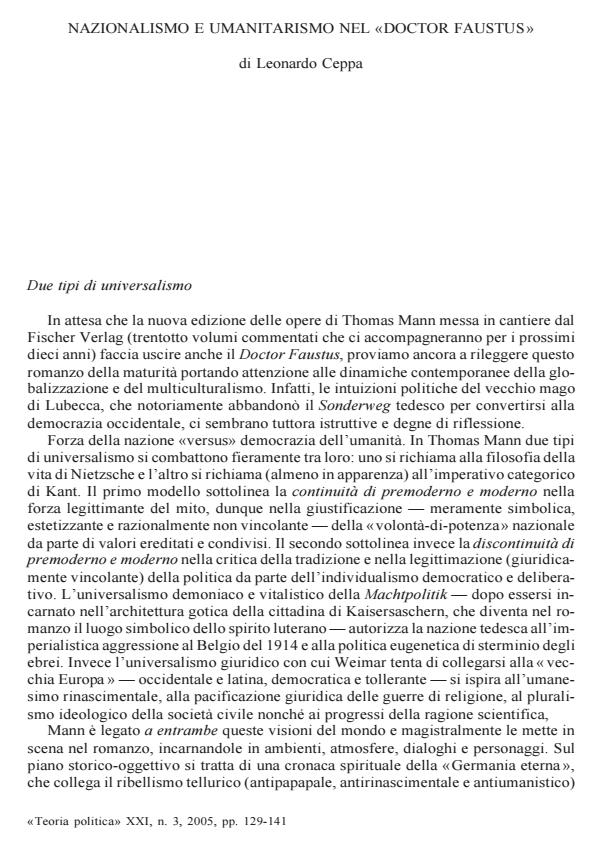Nazionalismo e umanitarismo nel Doctor Faustus
Journal title TEORIA POLITICA
Author/s Leonardo Ceppa
Publishing Year 2005 Issue 2005/3
Language Italian Pages 13 P. File size 326 KB
DOI
DOI is like a bar code for intellectual property: to have more infomation
click here
Below, you can see the article first page
If you want to buy this article in PDF format, you can do it, following the instructions to buy download credits

FrancoAngeli is member of Publishers International Linking Association, Inc (PILA), a not-for-profit association which run the CrossRef service enabling links to and from online scholarly content.
Strength of the nation as opposed to human democracy. In Thomas Mann two types of universalism fight fiercely between themselves. In appearance the first refers to Nietzsche’s philosophy of life, the other to the categorical imperative of Kant. But in reality Mann doesn’t withdraw from Nietzsche’s influence, neither does he convert to Kant. He rather converts Nietzsche himself to democracy. Mann doesn’t change from «Kultur» to «Zivilisation». He rather expands «Kultur» to the point of including «Zivilisation» itself. Mann doesn’t forsake the imperialism of the «will of power» to take on the universal logic of law. Rather he endevours to give a volontary base to the civic religion of democratic humanity. In other words Mann doesn’t relinquish myth to convert to science. Rather he humanizes and enlightens myth enriching it with a pedagogic and formative worth.
Leonardo Ceppa, Nazionalismo e umanitarismo nel Doctor Faustus in "TEORIA POLITICA" 3/2005, pp , DOI: